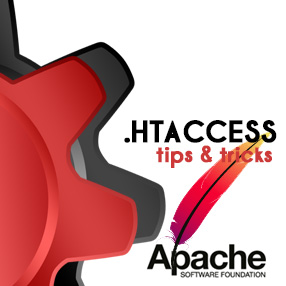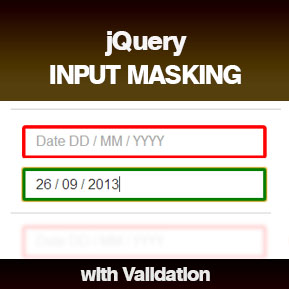The Hypertext Access (.htaccess) file is a configuration file which is used on Apache based web servers to control which features get loaded. The directives within this small text file are automatically read and the associated feature/functionality enabled/disabled. Here’s a list of just a few of the things you can do (htaccess tips and tricks):
Force WWW in your url
So, you can get to a website by typing http://mydomain.com or by
typing http://www.mydomain.com, should this matter to you? Yep. Search engines like Google doesn’t like
when you have duplicate content on a website, this can significantly decrease your search engine ranking. To make
sure that Google doesn’t index the content to the ‘non-www’ and the ‘www’ versions the same, it’s a good idea to
force the www in the URL when people access your website.
Below is the code you’ll need to add to your .htaccess
file to force/add the www to your URL. Replace ‘example’ with your domain name
# force www in url
RewriteEngine On
RewriteCond %{HTTP_HOST} !^www.example.com [NC]
RewriteRule ^(.*)$ http://www.example.com/$1 [R=301,L]
# END force www in url
Caching and Compression
mod_gzip is an external extension module for Apache that allows
you to quickly and easily compress your files before you send them to the client. By using this simple .htaccess
file cahing, you can save bandwidth and drastically increase your website’s speed.
# file caching
# 1 YEAR
<FilesMatch ".(ico|pdf|flv)$">
Header set Cache-Control "max-age=29030400, public"
</FilesMatch>
# 1 WEEK
<FilesMatch ".(jpg|jpeg|png|gif|swf)$">
Header set Cache-Control "max-age=604800, public"
</FilesMatch>
# 2 DAYS
<FilesMatch ".(xml|txt|css|js)$">
Header set Cache-Control "max-age=172800, proxy-revalidate"
</FilesMatch>
# 1 MIN
<FilesMatch ".(html|htm|php)$">
Header set Cache-Control "max-age=60, private, proxy-revalidate"
</FilesMatch>
# END caching
Nicer Directory listing
First, you may need to enable directory listing by adding
Options +Indexes
to your .htaccess file.
Now you may improve the listing by adding:
IndexIgnore htaccess header.html icons robots.txt
IndexOptions IgnoreCase FancyIndexing FoldersFirst NameWidth=* DescriptionWidth=* SuppressHTMLPreamble
HeaderName header.html
AddIcon icons/image.png .jpg .jpeg .png .gif</p>
Enable SSL with .htaccess
To force SSL (https://) on a single URL
# redirect for http /buy page
RewriteCond %{SERVER_PORT} =80
RewriteRule ^buy/?$ https://mysite.com/buy [R=301,QSA,L,NE]
To force SSL (https://) on a entire domain
RewriteEngine On
RewriteCond %{SERVER_PORT} 80
RewriteRule ^(.*)$ https://domain.com/$1 [R,L]
Setting server timezone
php_value date.timezone "America/Chicago"
Ensuring media files are downloaded instead of played
AddType application/octet-stream .zip .mp3 .mp4
Error documents
To setup error documents, for example for ‘401 Unauthorised’, ‘403
Forbidden’, and ‘500 Internal Server’ error messages, create a .htaccess file with the following:
ErrorDocument 401 /error_pages/401.html
ErrorDocument 404 /error_pages/404.html
ErrorDocument 500 /error_pages/500.html
Create directory “error_pages” and add a 401.html, 404.html and 500.html file with desired error
messages.
Deny visitors by IP address
To set-up visitors restrictions and blocking, create a .htaccess file
which includes the following text:
order allow,deny
deny from 255.0.0.0
deny from 123.45.6.
allow from all
To set-up blocking of all visitors except yourself, create a .htaccess file with the
following:
order allow,deny
allow from 255.0.0.0
deny from all
Prevent access to php.ini
To enable this, create a .htaccess file and include the following
text:
<FilesMatch "^php5?.(ini|cgi)$">
Order Deny,Allow
Deny from All
Allow from env=REDIRECT_STATUS
</FilesMatch>
Password Protect a Directory
To begin, decide which directory you would like to password protect (note
that all files and subdirectories within the directory will be password protected), then create a .htaccess file
with the following text within that folder (additionally run “htpasswd -c /var/.htpasswd admin” without the quotes
from the terminal to create the user account for accessing the directory):
AuthName "Member's Area Name"
AuthUserFile /path/to/password/file/.htpasswd
AuthType Basic
require valid-user
Default htaccess file




